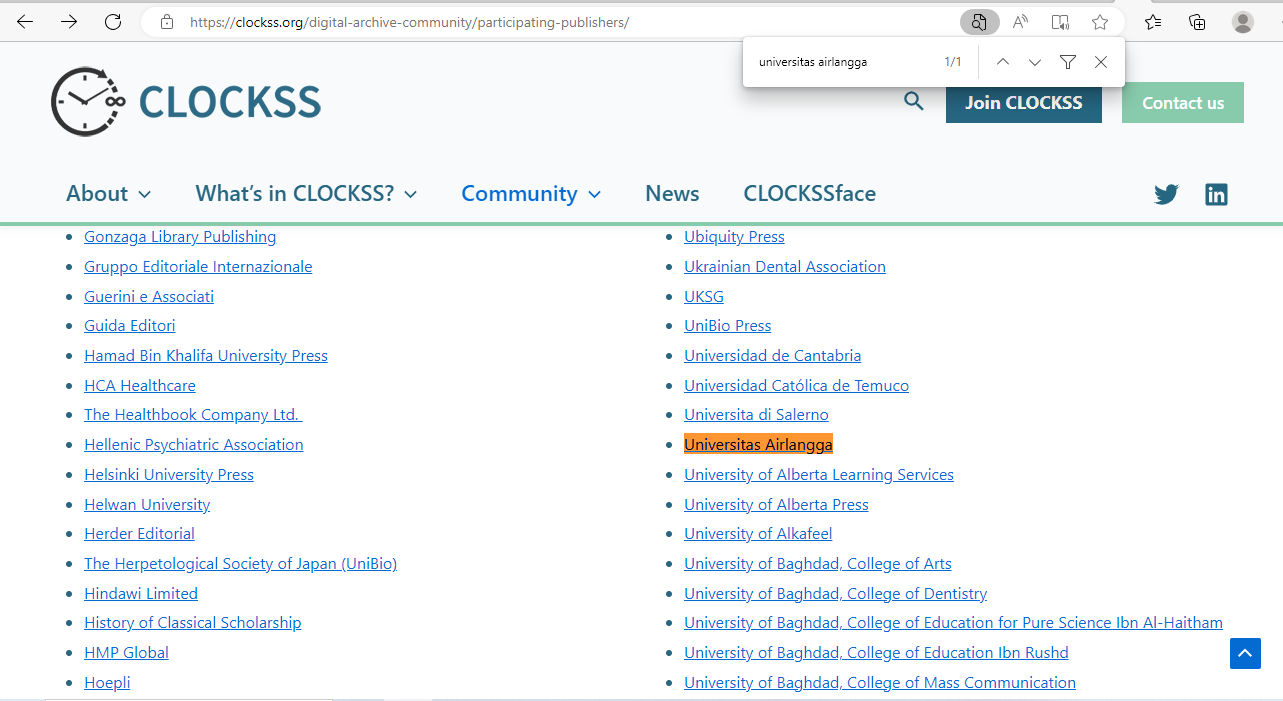- Focus and Scope
- Section Policies
- Peer Review Process
- Publication Frequency
- Open Access Policy
- Archiving
- Plagiarism
- Article Processing Charge
Focus and Scope
Airlangga Development Journal seeks to provide a place for academics, researchers, and practitioners to publish Research Articles or Original Articles in English or Bahasa Indonesia. The scope of the articles published in this journal discusses various topics, including:
- Social Science;
- Law;
- Society;
- Development;
- Creative Industries;
- Health Economy;
- Civil Administration;
- Woman Empowerment.
Section Policies
Original Articles
Peer Review Process
Airlangga Development Journal will publish the only paper strictly following Airlangga Development Journal guidelines and manuscript preparation. Those papers are read by editorial members (upon the field of specialization) and will be screened by Managing Editor to meet the necessary criteria of Airlangga Development Journal publication.
Airlangga Development Journal is a double-blind reviewed journal published by Universitas Airlangga. This journal is available in print and online and highly respects the publication ethics and avoids any type of plagiarism. The manuscript review process usually takes (on average) 4 to 6 weeks. This review period depends on the editors and reviewers' duration in reviewing the manuscript. If the author does not get confirmation from the ADJ for a long time, the author can confirm by email at adj@journal.unair.ac.id
This statement explains the ethical behavior of all parties involved in the act of publishing an article in this journal, including the author, the editor in chief, the editorial board, the peer-reviewers and the publisher (Universitas Airlangga). This statement is based on COPE's Best Practice Guidelines for Journal Editors.
Publication Frequency
ADJ is published two times a year in June and December.
Open Access Policy
ADJ is an open-access journal which means that all content is freely available without charge to the users or their institution. Users are allowed to read, download, copy, distribute, print, search, or link to the full texts of the articles, crawl them for indexing, pass them as data to software, or use them for any other lawful purpose without asking prior permission from the publisher or the author. This is in accordance with the Budapest Open Access Initiative (BOAI) definition of open access
Archiving
This journal utilizes CLOCKSS system to create a distributed archiving system among participating libraries and permits those libraries to create permanent archives of the journal for purposes of preservation and restoration.

Plagiarism
PLAGIARISM SCREENING
To avoid plagiarism, all submissions are screened using Turnitin before undergo the review processes. Plagiarism-free works should match these requirements:
1. Writing that quoting writings of others (by quoting indirectly) that has been well paraphrased, by making one's own words, instead of performing copy and paste or typing the source word-by-word, and write down the reading sources according to the rules of scientific writing.
2. Writing with the direct quotation, by quoting the same words as the original copies should apply quotation marks (for writing that less than 40 words), or if the quote consists of over than 40 words, the paragraphs should be notched and apply different font size.
3. Mentioning the source other people's ideas that are being used, whether from published or unpublished writing, both oral or written source, in any form of media
The manuscript that submitted into this journal will be screened for plagiarism using Turnitin. Manuscript with similarity rate more than 30% will be returned immediately to the author(s)
Article Processing Charge
Article Submission Charge
The author is not charged the article submission fee as an article submission process.
Article Publication Charge
The author is not charged the article submission fee as an article Publication process.













